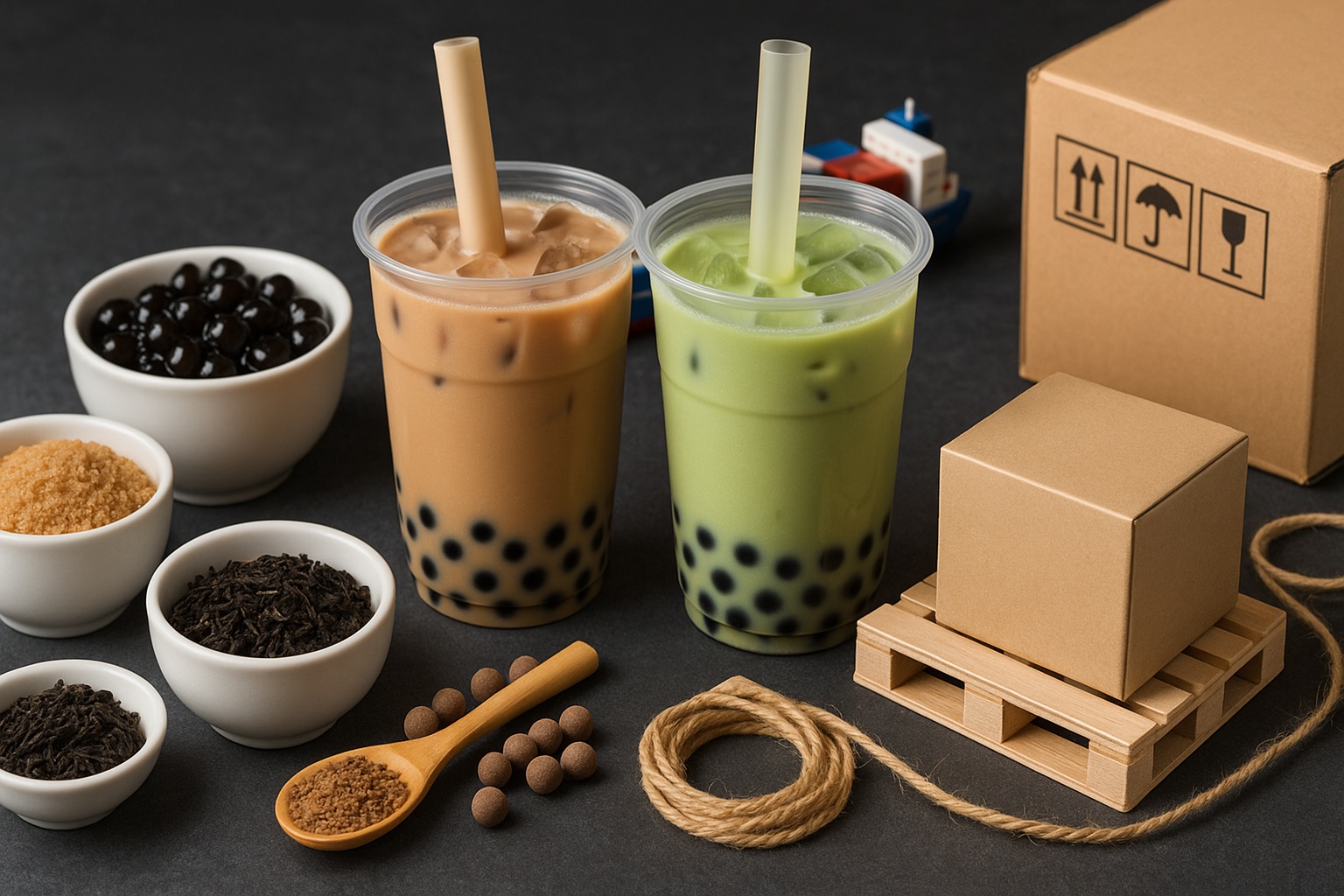Bubble Tea Supply Chain Management: Key Logistics Challenges for Global Exporters

The bubble tea industry has transformed from a regional specialty into a global phenomenon. With shops opening across Europe, North America, and the Middle East, demand for authentic Taiwan-made ingredients is at an all-time high. Yet, behind every cup of bubble tea lies a complex network of logistics and supply chain decisions. For global exporters, success depends not only on product quality but also on how effectively they manage shipping, cold chain logistics, customs, and compliance.
Shipping and Transportation Challenges
One of the greatest challenges in bubble tea export logistics is reliable transportation. Ingredients such as tapioca pearls, tea powders, and fruit syrups are highly sensitive to moisture and temperature. Common issues include:
-
Extended transit times that reduce product shelf life
-
Rising freight rates that increase cost per unit
-
Packaging failures leading to contamination or spoilage
For exporters, choosing carriers with food-grade logistics expertise is essential. Temperature control, container inspection, and accurate scheduling can make or break a shipment.
Cold Chain Logistics for Sensitive Ingredients
Certain ingredients—particularly frozen tapioca pearls and dairy-based creamers—require strict cold chain management. Even minor temperature fluctuations can damage texture and quality. Importers face two direct risks: customer dissatisfaction and wasted inventory.
Best practices include:
-
Reefer (refrigerated) containers for frozen pearls
-
Insulated packaging with temperature data loggers
-
Monitoring systems that track conditions in real time
These practices ensure consistency, protect brand reputation, and help meet regulatory standards in global markets.
Customs, Compliance, and Documentation
For bubble tea exporters, navigating customs procedures can be as complex as managing logistics. Each importing country enforces unique regulations for food and beverage products:
-
United States: FDA facility registration and allergen labeling
-
European Union: Detailed nutrition labeling and allergen disclosure
-
Middle East: Halal certification for syrups, powders, and flavorings
Incorrect HS code classification, incomplete documents, or failure to comply with labeling laws can lead to costly delays or rejections at customs. Working with experienced customs brokers and keeping documentation updated is critical for smooth operations.
Cost Efficiency and Risk Management
Freight rates, port congestion, and tariff changes remain constant concerns for distributors and franchise operators. Clients frequently ask:
-
“How can I minimize shipping costs for bulk tapioca pearls?”
-
“What happens if my order is delayed at port?”
-
“Can I protect my cargo from damage during long-haul transit?”
Practical solutions include consolidating shipments to maximize container utilization, purchasing cargo insurance to reduce financial risk, and structuring contracts under FOB or CIF terms to clarify responsibilities.
Building a Reliable Bubble Tea Supply Chain
Beyond transportation, cold chain, and customs, successful exporters focus on building trust and transparency into their supply chains. This includes:
-
Offering flexible order sizes to support both small startups and large distributors
-
Implementing consistent quality control before dispatch
-
Providing real-time shipment updates to reduce buyer uncertainty
A resilient supply chain is not just about efficiency—it ensures that bubble tea shops worldwide deliver the authentic taste consumers expect.
Conclusion
The global success of bubble tea depends on more than consumer demand—it relies on the efficiency of supply chains that connect Taiwan-made ingredients to international markets. Exporters must balance logistics costs, regulatory compliance, and cold chain reliability, while anticipating risks that can disrupt global trade.
For businesses exploring international bubble tea sourcing or seeking guidance on logistics planning, our team provides professional consultation. Contact us to discuss tailored supply chain strategies that ensure quality, compliance, and on-time delivery.

